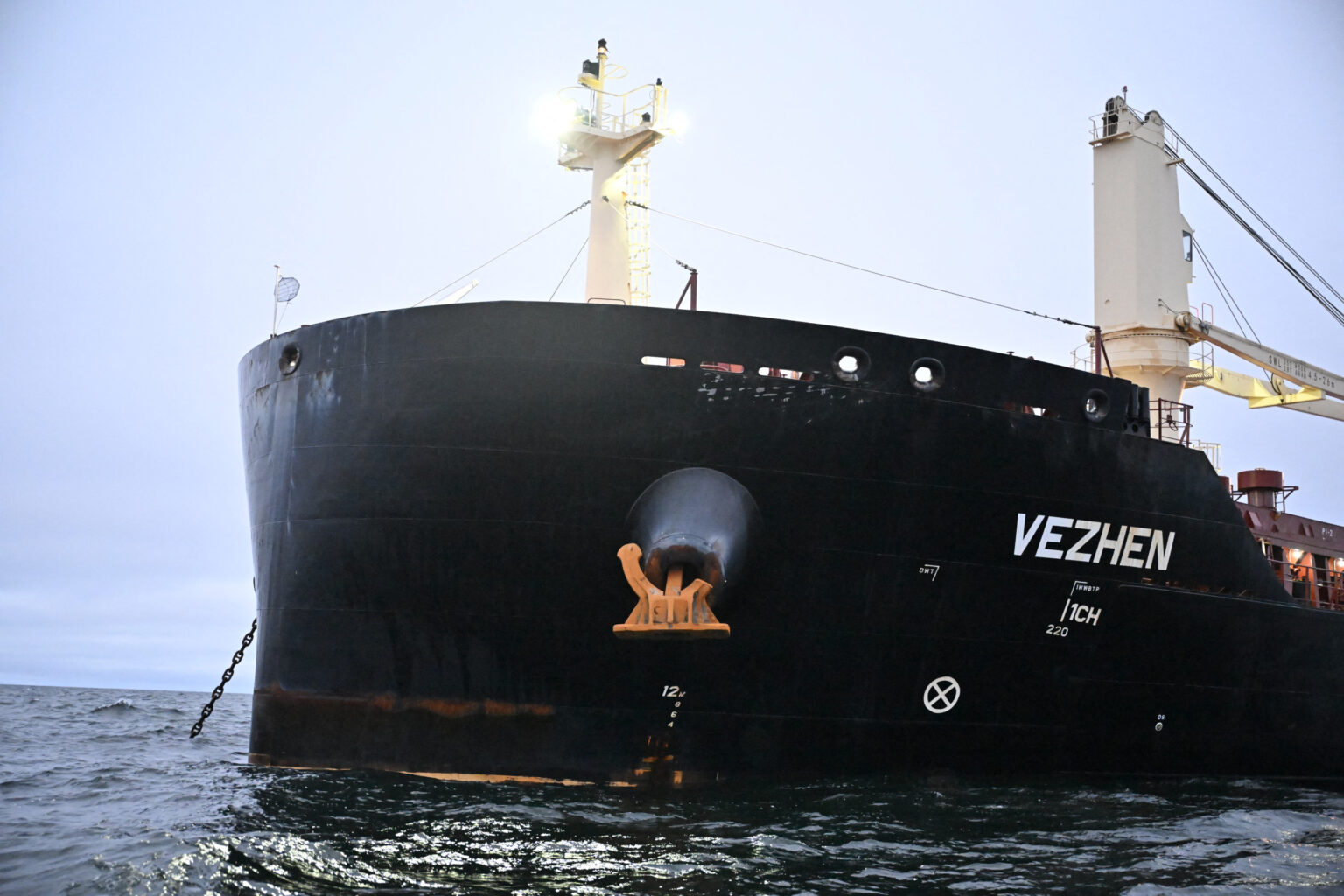Russia has accused the U.K. of working with Ukraine in a plan to stage provocations involving a U.S. ship in the Baltic Sea.
In a statement on Monday, Russia’s foreign intelligence service (SVR) said it knew of a plot to escalate the conflict in Ukraine with an operation in what is termed a “NATO Lake” due to its location surrounded by alliance members.
The statement provided no evidence for its claims and Moscow is often accused of pushing misinformation as a cover for its own activities.
It comes as Nichita Gurcov, senior analyst for Europe & Central Asia with ACLED (Armed Conflict Location & Event Data) told Newsweek suspected Russian destabilization activities appear to be picking up again across Europe following a lull earlier in 2025.
Newsweek has contacted the UK Foreign Office, the Ukrainian foreign ministry and the Pentagon for comment.
Why It Matters
The Baltic Sea has been dubbed the “NATO Lake” following the accession to the alliance of Sweden and Finland. Countries surrounding the body of water have accused Moscow of increasing sabotage acts in the region, and the warning by Russian intelligence could prompt concerns about further acts of aggression.
What To Know
The statement by Russian intelligence on Monday said the government of Ukraine’s President Volodymyr Zelensky intends to increase sabotage and terrorist activity against Russia to reverse problems faced by Kyiv’s forces on the battlefield and counter war fatigue among the Ukrainian population.
The statement said coordinated operations by Kyiv and its allies were behind attacks on railways in Russia’s Bryansk and Kursk regions, as well as Ukraine’s drone strikes on Russian airfields on June 1, dubbed Operation Spiderweb.
Kyiv’s upcoming plans, according to Russian intelligence, are to escalate the Ukrainian conflict, disrupt Russian-American negotiations and convince the White House of further military assistance to Kyiv.
The SVR also said that the Security Service of Ukraine and the Main Intelligence Directorate of the Ministry of Defense had been tasked with European special services “to intensify the preparation of a series of new bloody provocations.”
One proposed scenario would involve a Ukrainian-led plan to stage an alleged Russian torpedo attack on an unnamed U.S. Navy ship, which would explode at a “safe distance” and be blamed on Moscow.
Another scenario would be a plan by Ukraine and the U.K. to work with unspecified northern European countries to find Russian-made anchor mines in the Baltic Sea, which they could blame Moscow for trying to sabotage international sea routes.
The SVR statement gave no evidence for its claims, but it may raise concerns about Moscow’s own intentions in the region.
Ilja Iljin, a deputy commander of Finland’s coast guard, told Politico in April the Baltic Sea has registered at least six suspected sabotage incidents since 2022, with 11 known undersea cables taken out since 2023 and tankers linked to Moscow accused of involvement.
Meanwhile, Gurcov from ACLED told Newsweek Russian attempts at destabilization and targeting of countries supporting Ukraine had dropped earlier in 2025, possibly connected to Russian testing of the U.S.’s diplomatic pressure on Ukraine and its allies.
But following this lull, there has been an increase in suspected Russian destabilization activities across Europe, which include incidents in the Baltic Sea. They also comprise arson and foiled sabotage plots.
What People Are Saying
Armed Conflict Location & Event Data ACLED told Newsweek it recorded “at least seven incidents in May, including arson and foiled sabotage plots, in addition to increased tensions in the Baltic Sea.”
ACLED’s analyst Nichita Gurcov said “as Ukrainian drones continue to strike deep into Russian territory, this increase in events is very likely to continue.”
Russia’s foreign intelligence service (SVR): “(Kyiv) has become the perfect executor of vile provocations and terrorist attacks on behalf of ‘perfidious Albion and happily do its dirty work.”
What Happens Next
The Baltic Sea region is likely to remain on high alert for sabotage after a string of outages of power cables, gas pipelines, and telecoms.
Gurcov said that an increase in Russian sabotage events in Europe “is very likely to continue,” following what appears to be a loss of interest by the U.S. in negotiating an end to the war and as Ukrainian drones continue to strike into Russian territory.
Read the full article here


